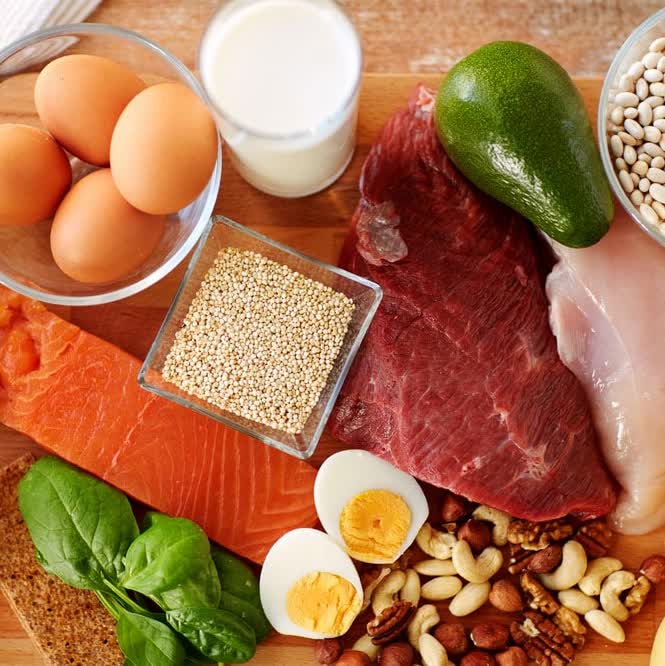Why do our bodies need Protein? What role does it play in our nutrition?

You’ve probably heard that protein is essential to a healthy, balanced diet. But why is it so important? What exactly does protein do for our bodies?
Let’s start with the basics. Proteins are made up of complex chains of organic compounds called amino acids. It is a critical component of EVERY cell in your body. Your body constantly uses these compounds to repair and build new cells, tissue, make enzymes, hormones, even neurotransmitters and various tiny molecules that serve many important functions. Proteins provide the building blocks that make up our blood, bones, muscles, connective tissue, cartilage, and skin. In fact, your hair and nails are made mostly of… you guessed it, protein! Without protein, life as you know it, would not be possible.
In terms of dietary nutrition, along with carbohydrates and fat, protein is a “macronutrient”. Essentially, the body needs relatively large amounts of it. Comparatively, vitamins and minerals, which are needed in much smaller quantities, are called “micronutrients”. Unlike fats and carbohydrates, the body does not store protein, therefore has no reservoir to draw on when it needs a new supply. Without sufficient protein in the diet, our bodies begin to slowly breakdown.
There are vastly different opinions on how much protein people actually need. Most official nutrition organizations recommend a fairly modest intake of .8 grams per kilogram of body weight (.36 grams per pound) of protein per day. Though this meager amount may be enough to prevent deficiency, studies show that it’s far from sufficient to ensure optimal health and body composition. It turns out that the right amount of protein for any one individual depends on many factors, including their activity level, age, muscle mass, physique goals and current state of health.
If you’re at a healthy weight, don’t lift weights and don’t exercise much, then aiming for 0.36–0.6 grams per pound (0.8–1.3 gram per kg) is a reasonable estimate. This amounts to:
However, given that there is no evidence of harm and significant evidence of benefit, it’s likely better for most people to err on the side of more protein rather than less.
This is not a free pass to fill your plate at the steak buffet, or serve yourself an extra serving of meat with every meal. In fact, beef and other meats containing large amounts of artery-clogging saturated fats will do more harm than good. Bear in mind, not all protein sources are created equal and we don’t need to load up on massive amounts. However, we do need to include healthy, clean sources of protein in our diet every day.
Recent Comments